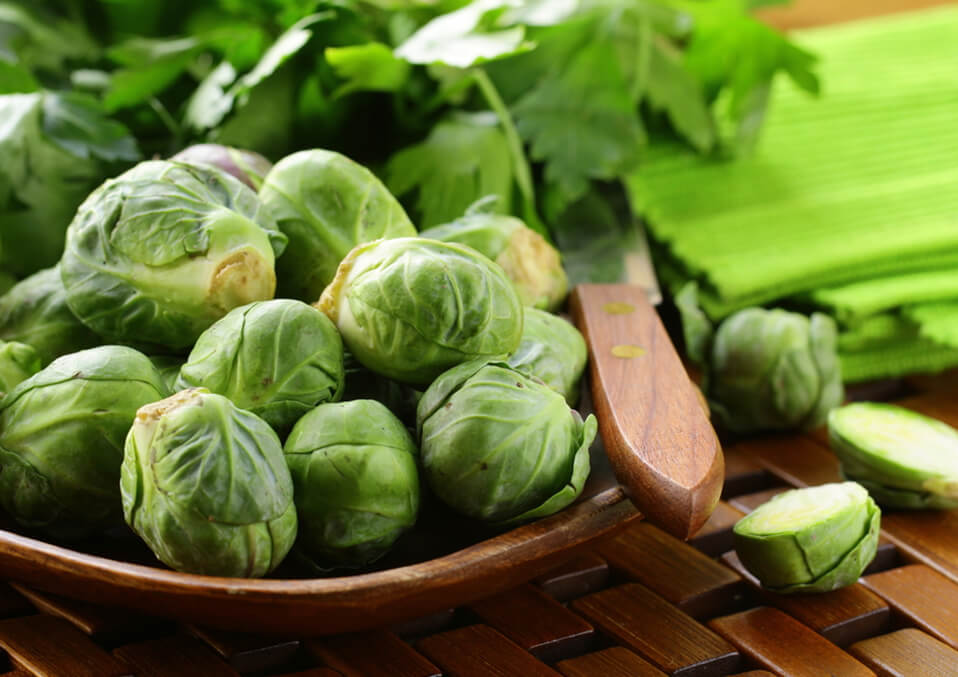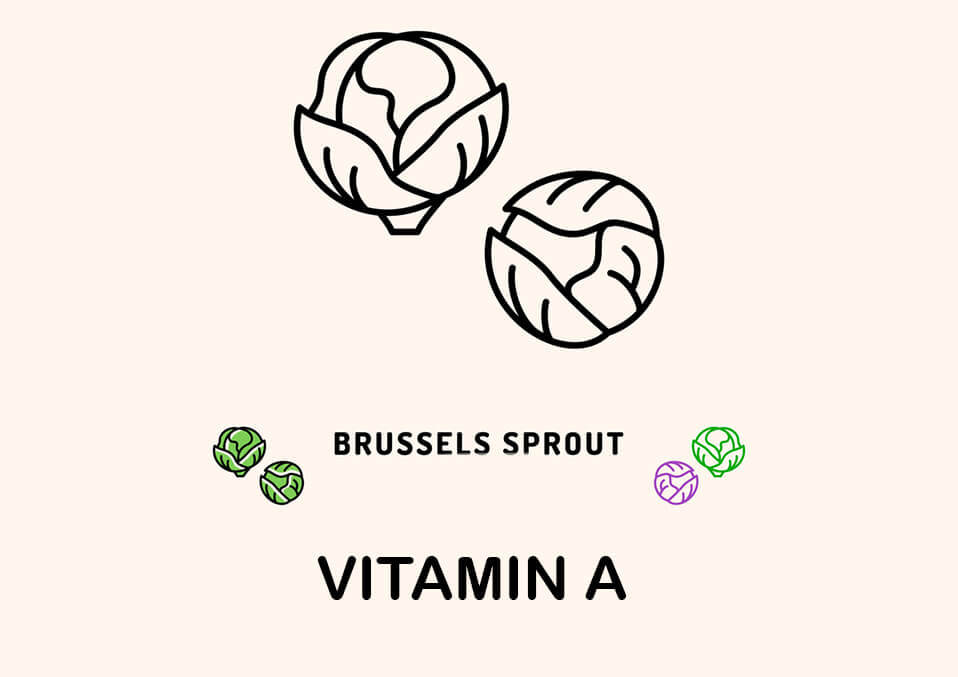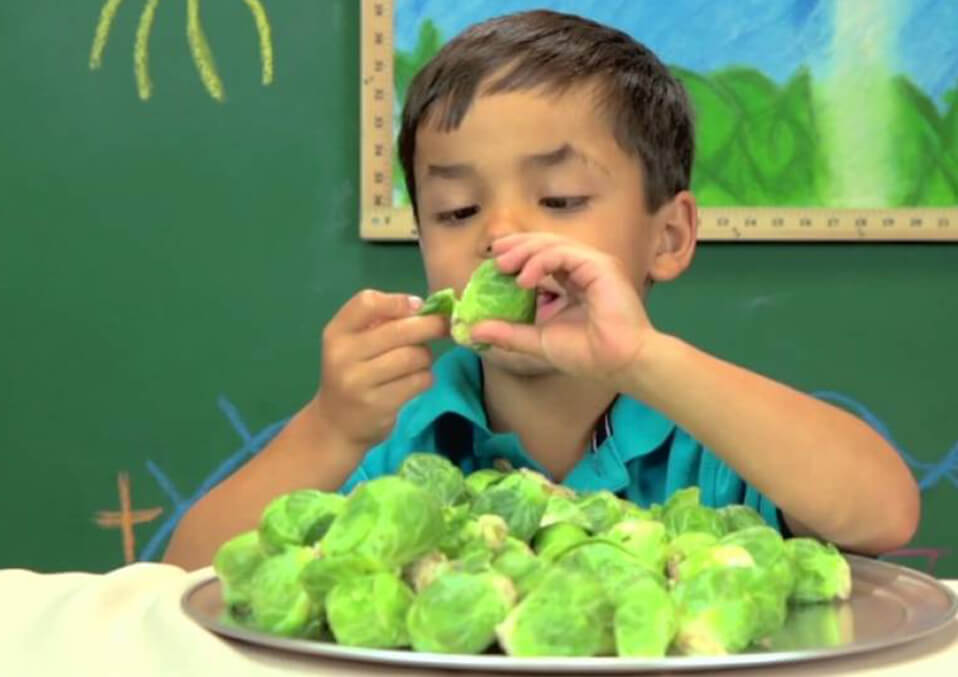
When you ask little ones if they like vegetables, you probably get a shake of the head or worse, a “no” with a deadpan expression on their faces (trust me, I have asked some of my nieces and nephews, and I got this as a response, it’s possible). Brussels sprouts for kids is like the end of a great vacation—they do not like it. They will always be after that sweet stuff like candy, ice cream, chocolates, maybe some chips, and some other foods that their developing bodies will not get many nutrients from so it’s every mom’s goal to get them to eat fruits and veggies. If they have done so successfully, I bet they would feel like a million bucks! So, in a list of healthy things you can feed your child, let me help you out with a suggestion, brussels sprouts.
What are brussels sprouts?
Brussels sprouts look like baby cabbages. Why? Well, it’s because they come from the same family. These cute little guys were cultivated in Brussels, Belgium where they got their name from. Along with broccoli, cauliflower, radishes, and arugula, it is considered to be cruciferous which means that it belongs to the Brassicaceae or the mustard family.
Why they are amazing

Let’s dive right into it—did you know that brussels sprouts are considered to be one of the healthiest vegetables there are? Here is why:
- Rich in fiber
Having 2 grams per half a cup, this fruit helps aid your child’s digestion. Fiber helps the body to release waste from our body regularly. Also, fiber slows down the pace of how our bodies digest sugar, so we feel full for longer. And to add to this, it can help prevent colon-related sicknesses.
- A good source of Vitamin C
Of course, it is always good that our body gets enough vitamin C as this helps our body fight off illnesses. Brussels sprout actually has 81% of the recommended dietary intake.
- Packs a great amount of Vitamin K
One of the lesser-known vitamins, this actually helps prevent too much bleeding. Say you have a wound, do you notice how the blood does not continuously go out—that is what vitamin K does. It is in charge of blood clotting. Also, researches show that this also is good for the bones that it is even said to help treat osteoporosis. Half a cup of this vegetable has 137% of the recommended dietary intake. Because of the high level of vitamin K, you should be watchful of the amount your child will be eating although researchers have not yet set the maximum dose that would be safe.
- Contains Vitamin A

Vitamin A is popularly known to help preserve our eyesight. But did you know that it also helps in the production of WBC’s or white blood cells which protect the body by fighting off diseases and infection-causing germs? Also, vitamin A reduces the risk of acne (a little too early to start worrying about this, but it is also good to know!). Containing 12% of the recommended dietary intake, this will surely benefit your child’s health!
- Helps by giving a lot of antioxidants
Reducing oxidative stress in the cells, antioxidants help prevent chronic diseases. Having the antioxidant kaempferol, this prevents the formation of cancer cells, so you could say that it helps lower the risk of having cancer.
- Has folate and manganese too!
Folate is a vitamin that helps with converting carbohydrates to energy, it also aids in the production of the red and white blood cells our bodies need to fight off diseases and infection. Manganese, on the other hand, helps with the utilization of a number of vitamins, reduce inflammation, and protect the body from free radicals that could potentially cause cancer and heart diseases. Brussels sprouts have 12% of the recommended dietary intake for folate and 9% for manganese.
A lot of good stuff indeed! Brussels sprouts for kids should definitely be on your list! When we research the benefits we can get from eating brussels sprouts, we are surely going to get a lot of good reviews and research results, but the problem now is: how are we going to get our children to eat them? Let’s move on, shall we?
Tips to make brussels sprouts tasty for your kids

There is no denying that these are packed with a lot of vitamins and minerals, but of course, the nutritional content is one thing, but the taste is a totally different topic. These sprouts are not really topping the charts when it comes to taste and smell. So here are some tips to make brussels sprouts for kids a lot tastier.
Buy fresh ones!
Of course, we need to make sure we will be buying fresh ones. We do not need to make the chances of our kids hating them even bigger.
Don’t even think about boiling them.
Just don’t. Once you do, the smell is going to spread across your kitchen, and it is not going to be the most fragrant smell in the world.
Sauté them or put them in the oven.
Sautéing is a good way to go as well as just putting them in the oven. They should caramelize just as good, and that’s going to make a huge difference!
Spread them out nicely and keep the heat low.
Spreading them out will make sure that all sprouts will get caramelized. Since they turn brown rather quickly, you should keep the heat low.
Wrapping it up…
Brussels sprouts are indeed a vegetable that can do wonders for our bodies. It is rich in fiber, antioxidants, folate, manganese, and vitamins A, C, and K. it’s a downfall? It really isn’t the crowd favorite when it comes to taste. But don’t worry, there are some things you can do to make it taste like buying fresh ones (a must), sauté them, let them caramelize, cook in low-heat, and the most important tip: Do not boil them.
Read also:
- Boils on Babies and How You Should Deal with Them
- Summer Chores for Kids: Training them to Become Better
- 6 Tips to Prepare Your Home and Yourself for Your Newborn


